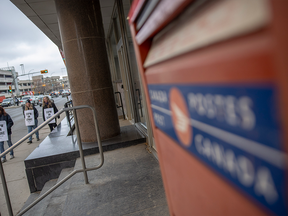Breadcrumb Trail Links
With traditional mail services still playing a crucial role for many, particularly among older Canadians, the ongoing Canada Post strike has become a real challenge. These individuals, including seniors and passport applicants, are facing significant delays that affect their day-to-day lives. Take Cecilia Lopes, for instance—a retired teacher residing on the West Island of Montreal. For her, the strike isn’t just an inconvenience; it’s a major financial concern.
“I rely heavily on a pension from Portugal,” she shares, “and unfortunately, they don’t do direct deposits to Canadian banks. So, the cheques need to come by mail, and now they’re stuck. This directly threatens my livelihood.” Cecilia also worries that if the cheques go uncashed for too long, they might get returned, causing even more headaches.
Seniors are particularly dependent on traditional mail services, not just for pension cheques, but also for medication deliveries and bill payments. A survey conducted by Canada Post in 2023 highlighted that those over the age of 65 still heavily lean on physical mail for accessing essential documents such as governmental benefits and personal communications. This reliance is primarily due to their lower adoption of digital technology and a preference for having tangible communications.
Interestingly, pensions account for over 15% of household assets among seniors, emphasizing how crucial these payments are for their financial well-being and the severe impact if mail delivery services are disrupted. Many, like Lopes, live alone, raising concerns about those without a strong support network. “For some seniors, this could be disastrous,” she worries.
The situation isn’t an isolated one. A good number of seniors draw private pension cheques from various sources such as employer-sponsored plans or unions. While the trend is shifting towards direct deposits, not all service providers offer this, leaving mail as the sole option. There isn’t a clear statistic on how many seniors solely depend on mailed pension cheques, but in 2021, over 6.7 million Canadians were part of registered pension plans.
Beyond pensions, the strike extends its disruption to those needing crucial documents like passports. For example, Rishi Balani, based in Ottawa on a work permit, recently submitted her passport for visa renewal. Despite paying for fast-tracked service, it remains undelivered. This delay led Rishi to write to the minister for public services, articulating her distress and underscoring how this isn’t a matter of getting goods, but crucial identification.
Amid the situation, Canada Post has committed to maintaining the delivery of domestic government pension cheques, but Lopes critiques the lack of a safety net for those expecting international pensions. “A significant number of Canadians receive their pensions from other countries,” she points out. “The federal government needs to step in and provide solutions.”
If you have more thoughts or concerns on how the Canada Post strike influences everyday life, feel free to reach me at [email protected]. We invite our readers to stay informed by bookmarking our site and subscribing to our newsletters for the latest business updates.


















